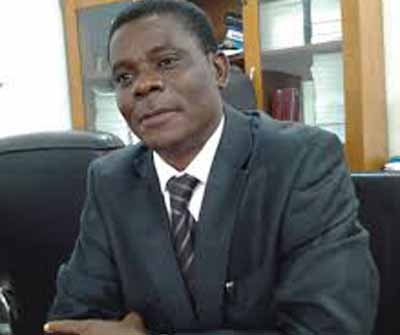
A bold effort to curb medical tourism and develop hospitals in Nigeria has begun as a Japanese based company; Fujitop Limited has offered to assist Nigerian hospitals with medical facilities that could detect and accelerate treatment for high profile health cases.
Managing Director of Fujitop Japan Limited, Ochade Osakwe, who dropped the hint yesterday when he led management of the company on a visit to the University of Nigeria Teaching Hospital (UNTH), Ituku-Ozalla and University of Nigeria Nsukka (UNN), said from the research carried out by the company, what Nigeria required to boost her medical services was the right medical equipment.
The facilities, which the company was willing to supply to Nigeria hospitals, include CT Scan, eco-machine, digital x-ray, Mammography and Endoscopic machines as well as any other that may be of need to the hospitals. He added that there was enough medical manpower in the country, stressing however that they are being hindered by lack of medical equipment to practice with.
He told the Chief Medical Director of the UNTH, Dr. Christopher Amah, and Vice Chancellor of the UNN, Prof Chukwuma Ozumba, that the company would procure the medical facilities, ship, install and get them running at the designated hospitals free of charge after entering an undertaken with management of the institutions on how proceeds from it would be shared to enable them recoup their investments.
“All you need do is to provide the space and identify the machines you want and we will help you procure them, install them and make them operational. You won’t spend a kobo in doing so. We shall also provide training for your staff that will handle the machines, while our engineers in Nigeria will undertake maintenance and servicing of the machines until we were able to recoup our investments. It will also be your duty to bring in the patience and encourage people to stay here and treat their ailments than doing same overseas”, he said.
Flanked by the President of the Company, Kazumichi Kato and others, Osakwe a Nigerian, said it the effort was part of the decision by Nigerians in Japan led by its President, Prof Emenike Ejiogu, who is also the head of department of Engineering at UNN to give back to the country as well as promote the health of the people.
“Over 25 years that we have been outside this shore and living in Japan, we have seen different systems health wise and when we come back home, we discover that we are still struggling to get these things right and one of the things we discovered is that our hospitals are being neglected so much. The manpower is there but the problem is the machinery to practice what had been learnt and as such, no much impact is made.
That is why we resolved that we will help the Nigerian hospitals (Public or private), partner with them in equipment, discuss with them first of all and know what they want, and then when we have that we can fix them into our business model. Fugital Japan will buy the equipment, ship it to Nigeria, deploy it to the site of the hospital, install it at no cost to the hospital or university, then when the equipment start running, we will know how to recoup our investment,” he stated.
According to him, the company will replicate the project in other parts of Africa, explaining that they decided to start with Nigeria based on the relationship the owners of the company had enjoyed with Nigerians working in them.
He further identified irregular power supply, as part of the challenge being faced in most medical institutions in the country, assuring that the company would provide alternative sources to power the machines while in use.
In their separate speeches, the heads of the institutions, Amah and Ozumba assured the company representatives that they would study the proposal with a view to knowing possible areas of partnership.
They agreed that with the right medical facilities, Nigeria would curb several challenges posed to the health sector, stressing that many Nigerians practicing overseas have excelled because they operate with the appropriate facilities.



